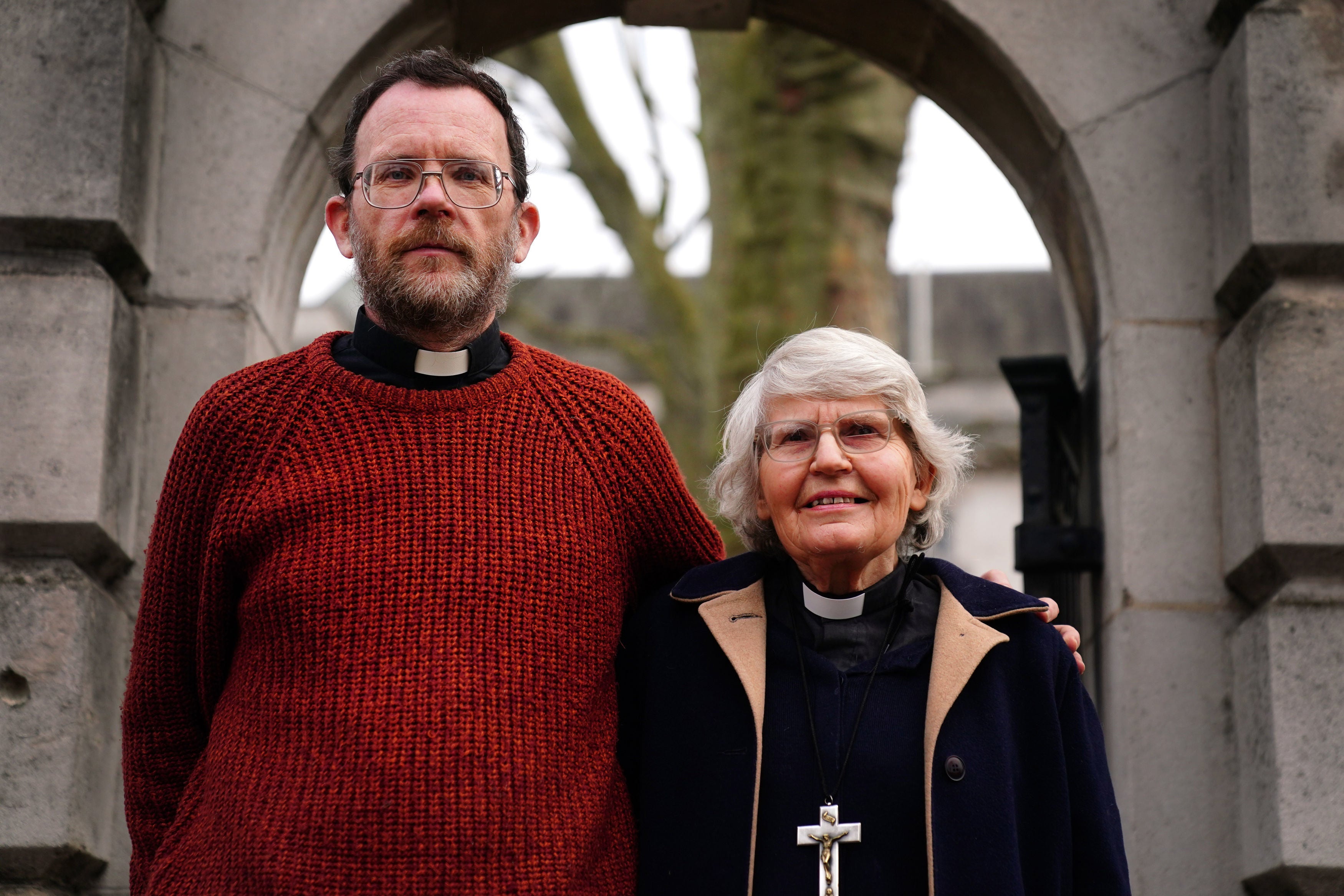Climate protester priest who climbed on rush hour train tells court ‘we tried everything else’
Video clips from the scene showed angry passengers swearing at the protestors

Your support helps us to tell the story
From reproductive rights to climate change to Big Tech, The Independent is on the ground when the story is developing. Whether it's investigating the financials of Elon Musk's pro-Trump PAC or producing our latest documentary, 'The A Word', which shines a light on the American women fighting for reproductive rights, we know how important it is to parse out the facts from the messaging.
At such a critical moment in US history, we need reporters on the ground. Your donation allows us to keep sending journalists to speak to both sides of the story.
The Independent is trusted by Americans across the entire political spectrum. And unlike many other quality news outlets, we choose not to lock Americans out of our reporting and analysis with paywalls. We believe quality journalism should be available to everyone, paid for by those who can afford it.
Your support makes all the difference.A priest who caused massive disruption by climbing on top of a train to highlight climate crisis told a court: “We’ve tried everything else”.
Father Martin Newell, 54, along with Reverend Sue Parfitt, 79, and Phil Kingston, 85, blocked a DLR train at Shadwell station at around 7am on the morning of 17 October 2019.
Fr Newell, from Birmingham, and Rev Parfitt, from Bristol, climbed a retractable ladder and sat on top of the carriage while Mr Kingston, from south Gloucestershire, superglued his hand to the side of the carriage in a protest against climate change. The trio are members of Christian Climate Action, an arm of Extinction Rebellion.
Video clips from the scene showed angry passengers swearing at the protestors and asking them to come away.
Two further protestors can be seen at the scene, although Fr Newell indicated there were between 10 and 12 present at the station. None of the others have been charged.
The line was disrupted for a total of 77 minutes while 15 DLR trains were cancelled or delayed.
Fr Newell wore his clerical collar today as he stood in front of the court to give his evidence.
He agreed with his lawyer, Owen Grenall, that he took the action, telling jurors: “Essentially because there is a climate emergency which is an existential threat to the human race and because this was the best way that I could think of, at that moment, at that time, to draw attention to it and get the government to take action.
“We’ve tried everything else – that wasn’t working, and unfortunately disruption seems to be the best way to get people’s attention and the government’s attention.
“The symbolic power of that action, of people seeing that – why would someone do that, why would someone climb on top of a train, stop a train – people will think well, it must be really serious for people to do this.”
Fr Newell told the court that inherent to his decision to take part in the protest was his Christian faith. He has been ordained as a priest for 25 years.
Jurors heard he had printed out copies of a prayer “Litany of the Earth”, parts of which he had adapted from other prayers and parts he had written himself.
“It’s a long prayer – I wrote most of it myself and a part of it is obviously about concern for the environment and concern for our part in what we are doing to the earth – God’s Earth and asking God to forgive us for what we’ve done and ask God to change what we need to.”
Sitting on top of the train, the pair recited the prayer, alternating turns.
In the midst of the action, a fellow commuter climbed the ladder and threw the paper copies onto the platform.
Fr Newell said: “The most important commandment for a Christian is to love God and to love our neighbour. Pope Francis says the earth is our neighbour.
“All of us we depend on the earth for our life, so if the earth is suffering we suffer too.”
During his evidence, Fr Newell was also asked about the lengths taken to ensure the safety of the protestors and other passengers, during which he explained the decision to avoid underground trains both for their ‘curved roofs’ and the additional dangers of climbing onto the train underground and passengers in other trains being trapped underground.
The three all deny one charge of obstructing engines or carriages on railways.
The trial continues.